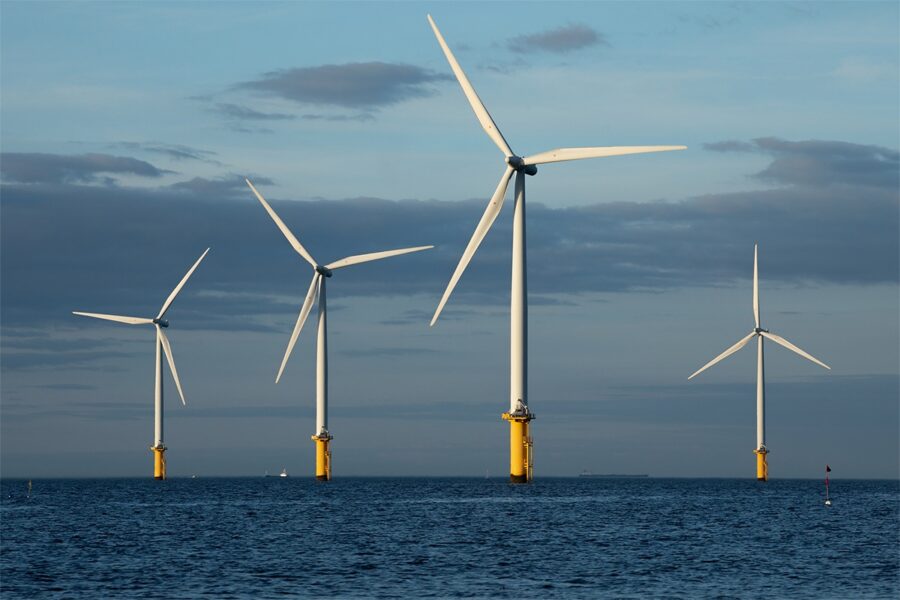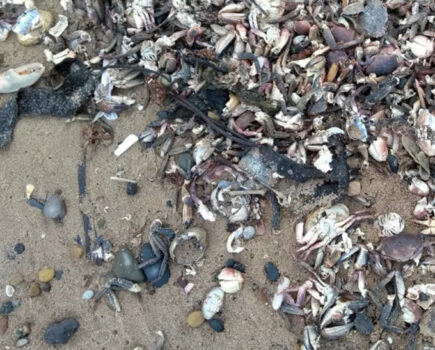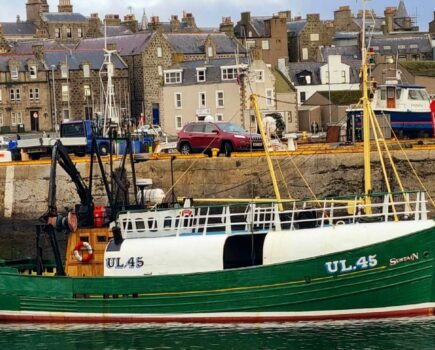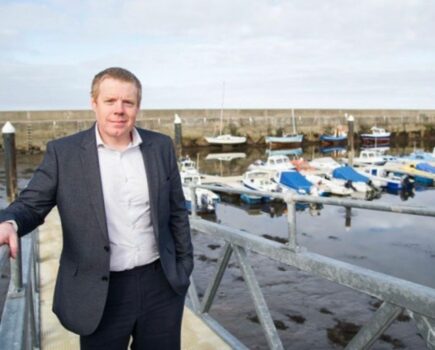The Scottish Government says it is working with the fishing industry and offshore wind farm developers to balance the interests of both sectors. It has opened an 80-day consultation on the development of an updated sectoral marine plan for offshore wind energy (SMP-OWE), and says it is maintaining a dialogue with both industries.
Its programme of work includes a new project to estimate the cumulative impact on fisheries from offshore wind development, cabling, Marine Protected Areas and other relevant marine polices.
The government is also looking at possible solutions to co-existence issues with both sectors, including skills and retraining opportunities and development of a strategic fisheries fund.
The draft updated plan sets out key parameters to guide licensing and consent decision-making and support projects through the leasing process.
“With respect to impacts on other marine sectors, the key issue likely to present a consenting risk/constraint to development is displacement of fishing activity,” says the draft plan. It also notes potential cost impacts to the tourism and recreation, shipping and subsea cables industries.
On the question of financial compensation, the Scottish Government programme is in discussion with the two industries on short-term disruption payment issues.
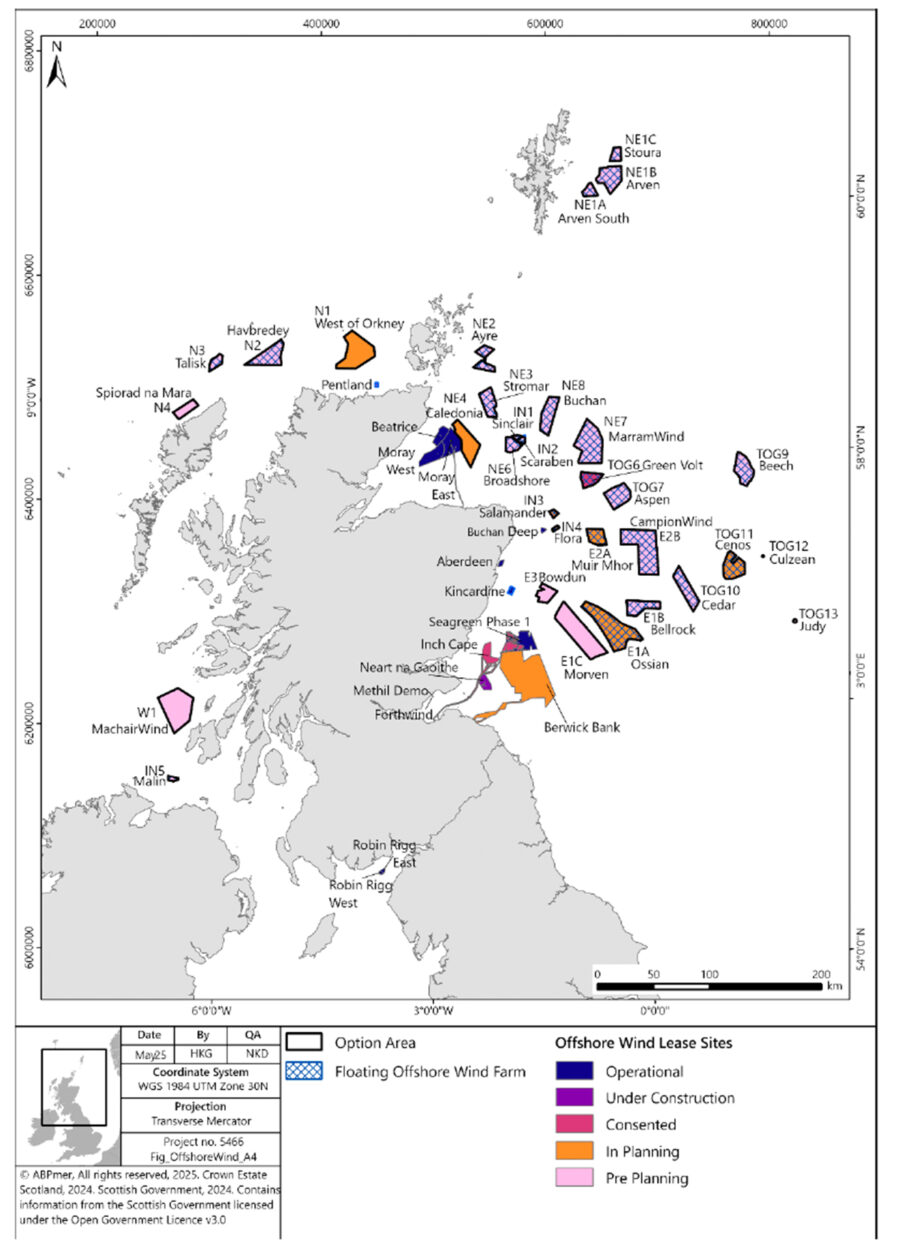
Map of Scotland’s offshore wind developments, up to date in March 2025. Areas outlined in black are the option areas included in the draft updated SMP-OWE. (Graphic: ABPmer)
Also, at UK level and to implement the UK Energy Act, the Scottish plan is looking at building a portfolio of strategic compensatory measures for Scottish offshore wind projects, and the potential establishment of a Scottish Marine Recovery Fund to accelerate offshore wind consenting and deliver the measures necessary to compensate for their environmental impacts.
This would require the UK Government to delegate functions under a UK statutory instrument for the operation of such a fund. The Scottish Government says it is also working ‘closely and collaboratively’ with the UK Government on a programme to implement the acceleration and regulatory reform of offshore wind across the UK.
It is also looking to develop new policy and guidance on how to address the environmental impacts of offshore wind activities through compensatory measures – by the Scottish Government for the Scottish inshore region (0-12nm) and the UK Government for the Scottish offshore region (beyond 12nm).
Announcing the consultation on the updated SMP-OWE, Gillian Martin, acting cabinet secretary for net zero and energy, said the plan was ‘a critical component of building a sustainable and resilient energy future for Scotland, and is central to delivering on this government’s combined agenda for economic growth and successful transition to net zero’.
She said Scotland has ‘an ambitious pipeline of potential development over the next decade’ and the plan had to be updated to reflect this.
“The draft updated plan has been informed by the latest scientific evidence. It clearly sets out the opportunities as well as the constraints of developing offshore wind in Scottish waters,” said the minister.
The Scottish Government says it is investing up to £500m over five years to support market certainty, create a productive, competitive offshore wind economy and support thousands of jobs.
There are currently eight operational wind farms in Scottish waters, two under construction, and a further 12 at various stages of development.
The consultation closes on 22 August.
SFF: ‘Plan confirms impact on fishing we’ve been highlighting for years’

SFF chief executive Elspeth Macdonald (pictured above) said the consultation on the updated SMP-OWE was ‘a hefty document’ that the federation had only just received and would carefully consider.
But she said there were two important points that had to be made at this early stage. “It recognises what we’ve been saying for years – that the expansion of offshore wind is going to have an impact on fishing,” she told FN. “We need to look very closely at the analysis they’ve done to see what they think that will be.
“The other thing that is very frustrating for us is that it’s taken until now to have this marine plan, and by the Scottish Government’s own admission they’re planning back to front.
“That is to say they’ve signed exclusivity agreements with the people who want to develop the ScotWind sites and the INTOG [Innovation and Targeted Oil and Gas] sites. That was done three years ago in the case of ScotWind and two years ago with the INTOG sites, and only now are we seeing the plan that shows what the impact of this will be.
“It’s very frustrating, because this plan is completely different from the sectoral plan they had back in 2020. There’s an interesting line in the executive summary which talks about ‘resetting the baseline’, but that’s just basically re-engineering their planning, because they’ve leased far more than they ever intended to.
“It’s very much reverse engineering, planning back to front, and the Scottish Government recognise that and they’re now having to retrospectively look again at all the sites that they’ve leased.”
Elspeth Macdonald said the federation had a lot of work to do to study the consultation document in detail to fully understand the impacts of offshore wind farms, not only on fishing but also the environmental effects and the socio-economic impacts.
“It is an important document, and it does recognise what we have been saying for years – that there’s likely to be a significant impact on fishing,” she said. “We’ve been saying since all of this was mooted that this is all going to have an impact on our industry, but they’ve gone ahead all the same and used these sites that are going to have an effect on us – and only now are they saying ‘oh goodness, this might be a constraint, this might be a challenge’.
“So we need to have some pretty serious conversations about what some of the solutions to this will be – we’ve still got a long way to go on this.
“We recognise the importance of renewable energy transition, the importance of moving away from an economy based on fossil fuels, but that must not be at the expense of our food production.”
She said that while the Scottish and UK governments were committed to achieving net zero, they also saw the process as creating opportunities for inward investment and job creation – but that must not be at the expense of indigenous Scottish businesses that had existed for generations.
“Many of these wind farm developers are international businesses, and we must not lose sight of our own businesses that have been developed over many years – smaller in scale but nonetheless important.”
She said the SFF would study the consultation document ‘very carefully’ and would make a further response in due course.
This story was taken from the latest issue of Fishing News. For more up-to-date and in-depth reports on the UK and Irish commercial fishing sector, subscribe to Fishing News here or buy the latest single issue for just £3.50 here.
Sign up to Fishing News’ FREE e-newsletter here.

